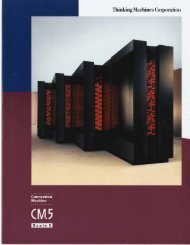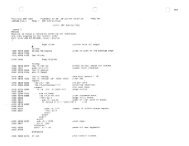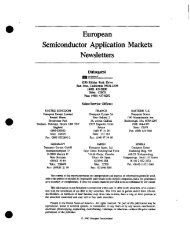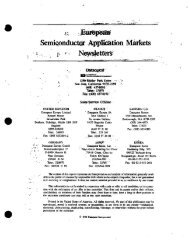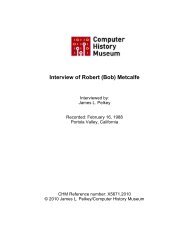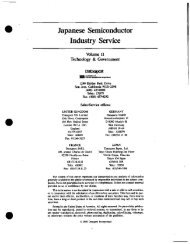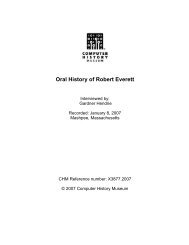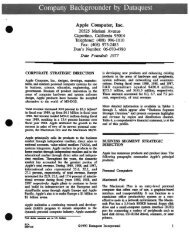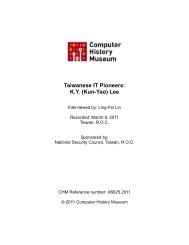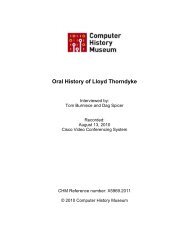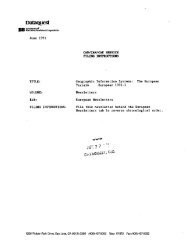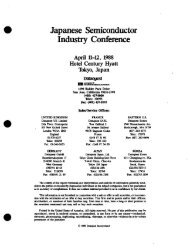ResearchNewsletter - Archive Server
ResearchNewsletter - Archive Server
ResearchNewsletter - Archive Server
You also want an ePaper? Increase the reach of your titles
YUMPU automatically turns print PDFs into web optimized ePapers that Google loves.
IBM<br />
Dataquest believes that IBM holds the winning hand in this card game. It is in a<br />
good position to influence the outcome of the EISA/MCA challenge and can sway the<br />
business community to embrace MCA. Our analysis is based on the following factors:<br />
Compaq<br />
• EISA may not be available from PC manufacturers for 9 to 18 months. This<br />
gives IBM time to introduce products that can take advantage of MCA, and to<br />
establish a user base. The sooner useful MCA applications hit the market, the<br />
greater the market share MCA will capture.<br />
• Although it has stated that the royalty structure will remain in place, IBM<br />
always has the option of changing its mind, if it becomes beneficial.<br />
• Companies that have a universal cross-licensing agreement in place with IBM<br />
may not be required to pay the same royalty fees as companies that do not.<br />
This makes it more attractive for those companies to manufacture MCA-based<br />
PCs.<br />
• It is being debated whether EISA or MCA, in the current configurations and<br />
environment, is technically superior. We laelieve that the issue is really which<br />
architecture will perform best in the future.<br />
An expected requirement is the ability to expand to a 64-bit data path<br />
and handle processing speeds above 40 MHz.<br />
- ESIA will have problems with both the physical accommodation of a<br />
64-bit bus and the electrical noise associated with high-speed processors.<br />
- IBM has the time and the option to redesign the current MCA to<br />
eliminate the debate and to clearly differentiate performance before the<br />
first EISA machine is even shipped.<br />
• Most importantly, whereas MCA exists now, EISA is, at present, vaporware.<br />
Compaq Computer will hold an estimated 3.4 percent U.S. market share of personal<br />
computers shipped in 1988. Compaq is also the leader of the EISA consortium, and we<br />
believe that it holds enough market share and following to make EISA a viable product.<br />
It was the first company to introduce an 80386 PC and continues to be a leading force in<br />
the industry.<br />
Dataquest believes that Compaq will follow through and introduce EISA regardless<br />
of how the rest of the PC industry reacts to extended bus architectures. In fact,<br />
Compaq has announced that, as of April 21, it will sever its relationship with<br />
Businessland. Businessland has stated that it may back only MCA technology; although<br />
Compaq denies that this caused the rift, many analysts believe otherwise.<br />
ESAM Newsletter © 1989 Dataquest Incorporated April



